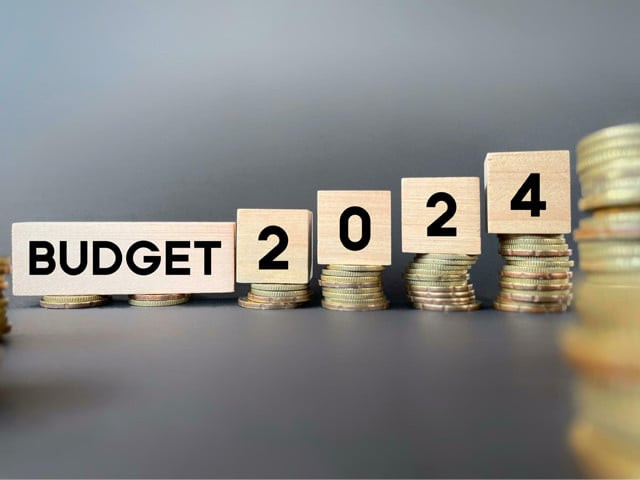The upcoming 2024 budget is more than a routine fiscal exercise for Pakistan; it is a litmus test of the government's ability to steer the country out of a dire economic crisis. With inflation spiralling out of control, decimating household incomes, and economic growth stagnating, the upcoming fiscal plan is not merely a set of numbers but a critical blueprint for survival. This budget is the government's last-ditch effort to pull the economy back from the brink, offering a lifeline to millions grappling with the soaring cost of living and the pervasive sense of economic despair. It is a moment of reckoning, demanding bold, innovative, and decisive action to stabilise the economy, restore public confidence, and pave the way for sustainable growth.
Inflation in Pakistan has been alarmingly high, with recent reports indicating it hovered around 24% on average for the fiscal year ending June 2024, down from a peak of 29.2% the previous year. The steep rise in prices, particularly for essential goods, has eroded the purchasing power of ordinary Pakistanis, leading to widespread public discontent. The root causes of this inflation are multifaceted: chronic fiscal deficits, a depreciating rupee, rising global commodity prices, and significant supply chain disruptions.
The 2024 budget must prioritise measures to tame this rampant inflation. One approach could be to tighten monetary policy further; however, this comes with the risk of stifling economic growth. Another is to address the supply-side constraints by improving logistics, reducing import tariffs on essential goods, and increasing subsidies for key agricultural inputs. Unfortunately, these measures alone might not be sufficient given the structural issues plaguing Pakistan’s economy.
On the growth front, Pakistan’s economy is projected to grow by a modest 2.6% for the current fiscal year. This growth rate is far below the potential of a country with a young and dynamic population. For sustained economic growth, Pakistan needs to invest heavily in infrastructure, education, and technology. The 2024 budget should, therefore, include substantial allocations for these sectors.
However, increasing public expenditure to stimulate growth without exacerbating the fiscal deficit is a tightrope walk. The government must be prudent in its spending, ensuring that funds are allocated to high-impact projects that can deliver long-term economic benefits. The focus should be on public-private partnerships, especially in infrastructure development, to leverage private sector efficiency and funding.
Pakistan’s economic instability is not just a result of short-term policy failures but also a consequence of deep-rooted structural issues. The energy sector, for example, continues to bleed cash, contributing significantly to the fiscal deficit. The 2024 budget must prioritise the restructuring of state-owned enterprises, especially those in the energy sector, to reduce losses and improve efficiency. Privatisation, albeit a politically sensitive topic, should be back on the agenda for loss-making entities like Pakistan International Airlines (PIA) and Pakistan Steel Mills.
Tax reforms are another critical area. Pakistan’s tax-to-GDP ratio remains abysmally low, partly due to a narrow tax base and widespread tax evasion. The budget should introduce measures to broaden the tax base and improve tax compliance. This could include leveraging technology to track transactions more effectively and reducing the tax burden on compliant businesses to incentivise formalisation.
The role of the International Monetary Fund (IMF) cannot be understated in Pakistan’s economic scenario. With the IMF set to approve a $1.1 billion tranche as part of a $3 billion Stand-By Arrangement (SBA), there is some fiscal relief on the horizon. However, reliance on IMF funds is not a sustainable long-term strategy. The government needs to use this period of fiscal respite to implement the necessary reforms that can put the economy on a more stable footing.
Moreover, Pakistan should explore other avenues of international aid and investment, particularly in green energy and sustainable development projects. Climate financing could be a significant opportunity, given Pakistan’s vulnerability to climate change and the global push for green investments.
The 2024 budget is a critical juncture for Pakistan. It offers an opportunity to stabilise the economy through prudent fiscal management and strategic investments. While immediate measures to control inflation are necessary, the budget must not lose sight of the long-term goal of sustainable economic growth. Structural reforms, investment in infrastructure and human capital, and a broader tax base are essential components of a robust economic strategy.
The stakes are high, and the margin for error is slim. The government’s ability to navigate these complex economic challenges will determine whether Pakistan can emerge from its current economic quagmire or sink deeper into instability. It is a time for bold decisions, strategic planning, and unwavering commitment to economic reforms.



COMMENTS (4)
Comments are moderated and generally will be posted if they are on-topic and not abusive.
For more information, please see our Comments FAQ